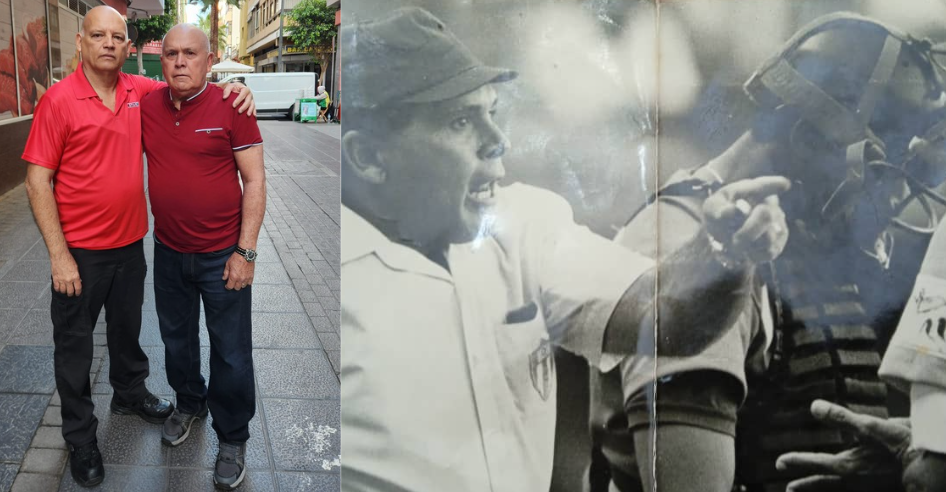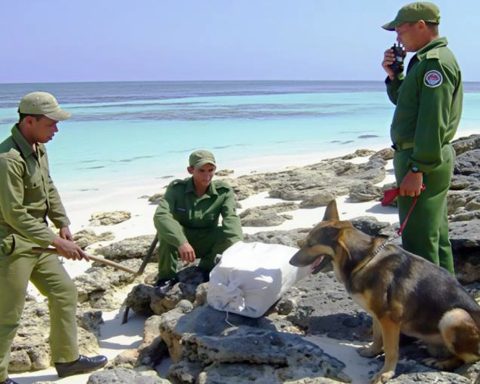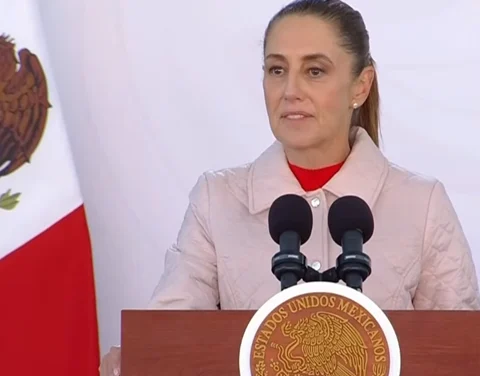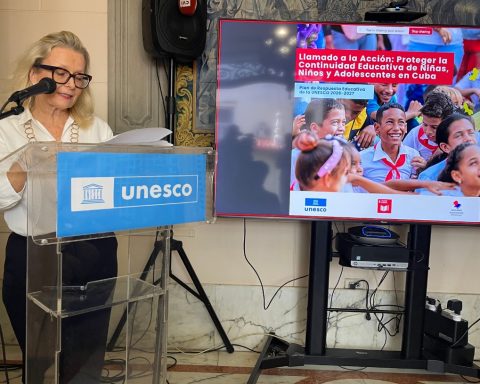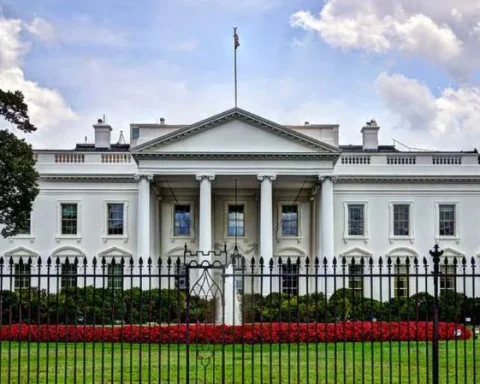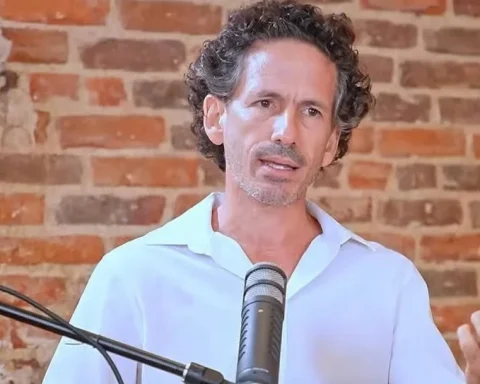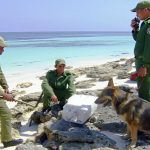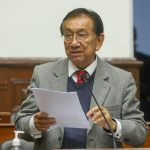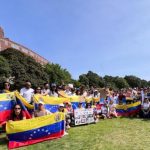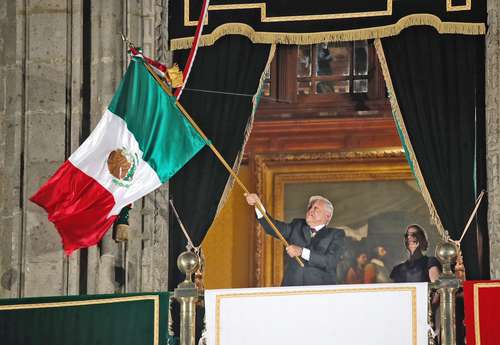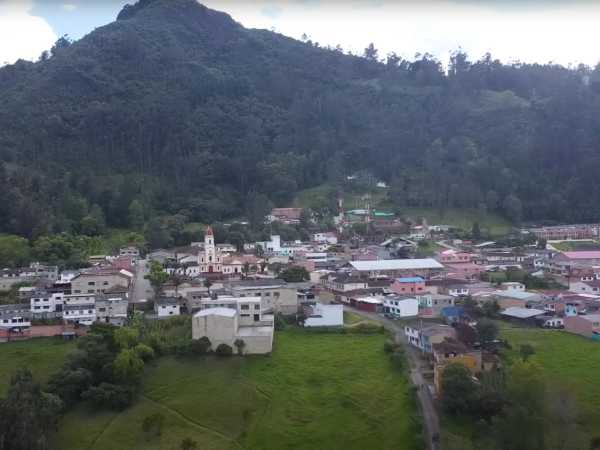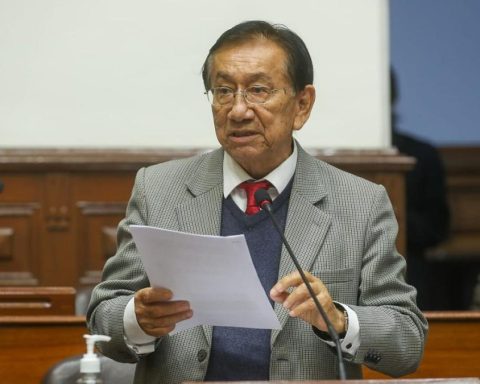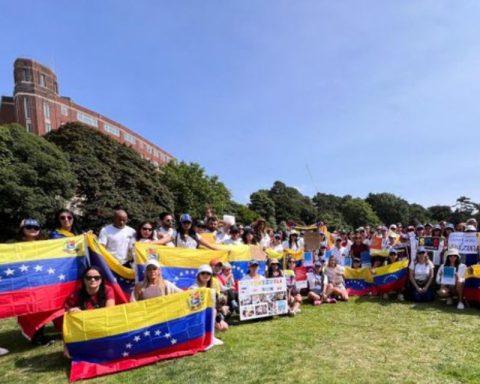HAVANA, Cuba.- Juan Rodríguez Tabares was so enthralled with the refereeing of baseball, When he opened his eyes, the time to emigrate had practically passed him by. But he was determined not to suffer the same fate as some of his most illustrious colleagues, who grew old sad and forgotten. So, in 2001, he took the big step. In other words, he crossed the pond.
By then his name had been mentioned thousands of times in the Cuban media, especially on TV. I still seem to remember Hector Rodriguez and Eddy Martin mentioning him as part of refereeing quartets dotted with legendary names: Ivan Davis, Alfredo Paz, Julio Ramon Veliz, Manuel “El Chino” Hernandez, Alejandro Montesinos…
For nearly three decades, Rodriguez Tabares delivered justice in a league that prided itself on being the second most powerful on the planet. It was the golden age of post-revolutionary baseball, and before him crouched the most sublime catchers, the God-level sluggers stood, and the best artists who climbed the mound of the National Series.
The thing is that glory cannot be eaten, and the native of Bauta made a trip with no return in 2001. He says that he saw no future for his old age, so he hung up his mask and, now 56 years old, dropped anchor in Miami. Goodbye baseball: what was left was the hard work in a factory.
But that was at the beginning. Later he managed to get a job as a referee in school competitions and independent leagues, “but that doesn’t make a living here and there was no hope of progressing since he didn’t speak English and was already old,” he tells me.
Determined to get ahead, he later joined the electric company of a friend who invited him to work with him. And there he put down roots. Twenty years later, about to turn eighty, Rodríguez Tabares remains in the same place, trying not to let life knock him out without giving it a go.
“Thank God I have some freedom at work, and although retirement doesn’t provide much, as long as I keep working I’m living an honest life.”
—What made you decide to choose refereeing?
—I was led there by the fact that my aspirations as a baseball player were limited, and since I really liked baseball, I opted for refereeing thanks to the help of a great friend from Bauta, Luis Rojas, may he rest in peace. I started, I improved myself and I reached the highest levels within refereeing in Cuba: that is, National Series, Selectives and international events.
—What is the hardest thing about being a baseball umpire?
—Getting away from your family. You stay away for a long time, going from one place to another, going through all kinds of difficulties. But on the field it’s not difficult. It’s about going from one game to another and always keeping impartiality in mind, which is what is essential for a referee. Every time you call a tight play, there will be a side that criticizes you, but that’s normal. The referee’s satisfaction is finishing the ball game without having decided it.
—Where did you feel more comfortable, working at home or on the bases?
—I really liked working at home, and especially with a large audience and television broadcast in the Latin. It forces you to get more into the game.
—Who do you consider to be the best referees that have ever played in the National Series?
—Cuba has been the land of great umpires, starting with Amado Maestri. But in the National Series, I think the most outstanding have been Alfredo Paz, Iván Davis, the recently deceased Orlando Valdés, and especially Nelson Díaz. That, without forgetting other names like Omar Lucero and Elber Ibarra.
—Which pitchers were the most difficult for you to work with? Were there any catcher who was also difficult for you?
—The most uncomfortable pitchers to work with at home plate are the ones with no control. I remember one day when Rafael Gómez Mena threw 110 pitches in five innings and the game lasted four hours and ten minutes. Another example is ‘Caña’ Ramos, who threw a lot of balls and had a great curve. Pitchers with control make the umpire’s job easier.
As for the catchers, there was one that was uncomfortable for almost everyone, Victor Muñoz, because he was very big and his style was not the best. When you worked with him in front of you, he reduced your visibility and precision when making decisions. But with good catchers like Juan Castro, Albertico Martínez, Alberto Hernández or Lázaro Pérez, it was much simpler.
—What do you consider to be the biggest mistake you made in a match?
—It was a play at third base in Pinar del Río. There were runners on first and second with two outs, the shortstop hit a ground ball and threw to Linares. ‘El Niño’ was stepping on the base for the force out, but it seems that he was joking and tried to tag the runner. That’s when I had a mental lapse and called ‘stop’, and at the same moment that I was calling it with my arms I said to myself ‘damn, it was a force out’. That’s when Jorge Fuentes came out to complain and I told him ‘I know I was wrong, I thought there was only a runner on second, but don’t worry, I’m going to meet with the umpires and it will be rectified’. I told my teammates what had happened to me, the play was reversed and that was it. It had no impact at all because Pinar was winning the game by a wide margin. Honestly, I don’t remember having decided a baseball game with a wrong call.
—Do Cuban umpires need direction outside the National Baseball Commission?
—Cuban refereeing needs a lot of support from the sports authorities, but I understand that it should be governed independently of the Commission. It must have its own management. Refereeing and sports in Cuba go hand in hand with the state of the nation. You cannot depend on the State to organize a championship, to make a team… They must have their own means, their own destiny, but the current system wants to cover everything and that cannot be the case.
—Describe the conditions under which you had to work when you were a referee in Cuba.
—The food in the National Series was good in some places, average in others, and bad in others. And the same thing happened with the lodging. As for the safety of the umpires, it was non-existent. Finally, what can I say about the salaries? They couldn’t be more miserable. Nobody thinks that at this point a man can work at home plate for a hundred pesos. To give an idea of how this profession is valued, in MLB The salary for six months is between 125,000 and 400,000 dollars, with accommodation in five-star hotels and 340 dollars as travel expenses. What I do think was better before was the referee’s training, because we had a hard time getting the province to take charge of the refereeing courses, but in the end they were given every year.
—How were you able to endure 27 National Series in the conditions you had to work in?
—Don’t think it was easy. Working so long away from your family and not giving them the warmth they need is complex, especially with so many difficulties to survive. We had it worse than the baseball players, because they are at home half the time and away the other half. On the other hand, the umpires would stop by the house one day and then rush to another province. What happens is that one feels passion for their profession and makes sacrifices, but after 27 seasons I didn’t see a future for my old age and decided to emigrate.
—How does a referee work with his home team on the pitch? Is it true that he often ends up playing against them so that he is not accused of favouring them?
—Anyone who truly feels like an umpire can never be biased. Otherwise, he should take another path. I never felt pressure from the Havana team, I even worked many games in playoff series. I remember one time in San Jose that Pedro Luis Rodriguez didn’t like one of my counts and wanted to make the game bad for me. So I called the catcher and the manager and told them that if I didn’t calm down there would be ejections. Pedro Luis didn’t pay attention and was ejected, but there was no problem because the warning had already been given.
—In your time, what were the fundamental technical problems of Cuban arbitration?
—The technical problems that existed before have always existed. The referees are directed by people who have nothing to do with the profession, and if at any time there was one who did know, he was still subordinate to the commissioner and could not make his own decisions.
—Why did you decide to emigrate? Do you think you should have done it earlier?
—I came to visit in 2001, invited by a brother of mine. I was 56 years old then, and I had made 15 trips abroad before, but I never decided to stay. On that occasion I saw that here you have to work hard to live and it was not an easy decision to leave my family behind, but I felt that there was a chance to grow and find a future for my people. The situation in Cuba was and is complicated and old age there is chaotic. The truth is, I regret not having taken the step of emigrating earlier, thank God I already have my children and grandchildren here and I feel in good health. Of course, it is no small thing to live away from friends and the land where you were born, in a country with a different language and so on. But I looked in the mirror of many referees who preceded me and I did not want to reach the age I am now in the situation they were in.
